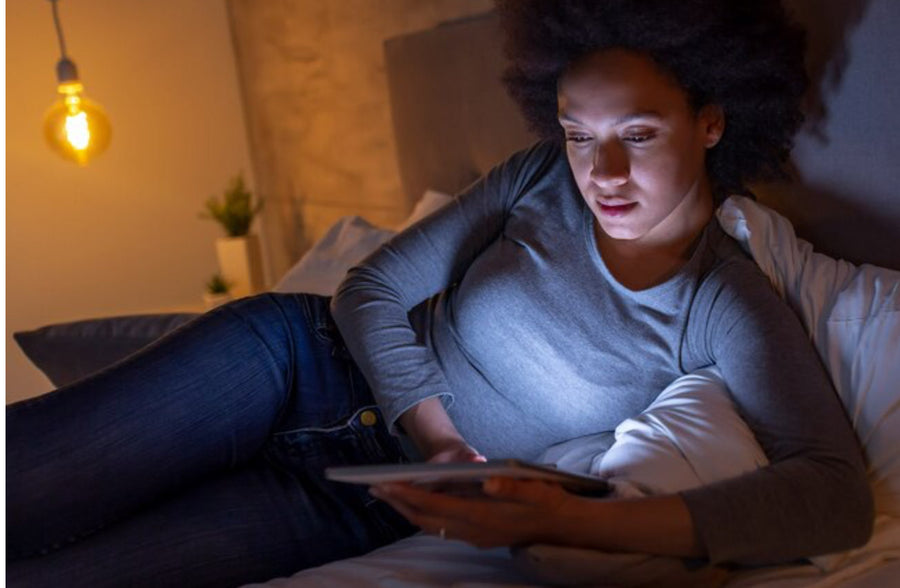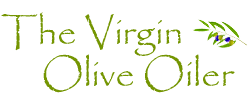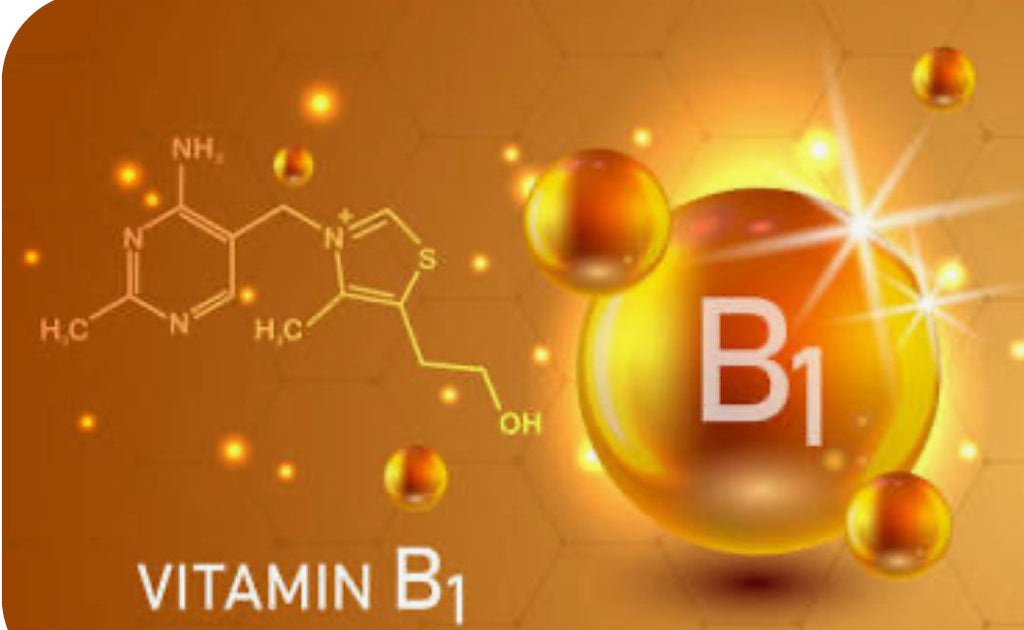SLEEP, LIGHT and EVOO - Blog #30

Hello Everyone! Welcome back to another Friday blog. I originally wrote this blog in early 2021. I updated it January 2025 and am bringing the latest research to you. Today I want to look at sleep, sleep deprivation, and what we can do to enhance sleep, have uninterrupted sleep and be able to reach that beneficial “deep sleep.” Most people don’t get the sleep their body requires to function optimally, thus negatively affecting their health. When we are sleep deprived, we don't release neurotransmitters appropriately, our reaction time is not as fast, our thought-processing is slowed - the result is reduced cognition, increased risk of insulin-resistance and T2D (type 2 diabetes), cardiovascular disease, Alzheimer's - as well as a host of other chronic disease processes. Let's delve in.
During sleep, we experience three NREM (non-rapid eye movement) and one REM (rapid eye movement) sleep phases. We tend to go through 4-6 cycles per night. Let’s briefly look at the stages of sleep.
3 phases of NREM sleep:
- Stage 1= Eyes are closed, transitional phase - easy to rouse, lasts 5-10 min - Alpha and theta waves occur.
- Stage 2= Light sleep, heart rate slows, body temp drops, lasts 10-25 min - theta waves, sleep spindles (short bursts of brainwaves), k-complexes (mechanism of sleep protection)
- Stage 3= Deep sleep, harder to rouse, disoriented if aroused. During this stage of NREM sleep, the body repairs and regrows tissues, builds bone and muscle, and strengthens the immune system. This is Delta sleep - our respiratory rate drops, breathing becomes shallower, O2 goes down.
REM Sleep: beta waves
- “REM sleep happens 90 minutes after you fall asleep. The first period of REM typically lasts 10 minutes. Each of your later REM stages gets longer, and the final one may last up to an hour. Your heart rate and breathing quicken. You can have intense dreams during REM sleep, since your brain is more active. REM is important because it stimulates the areas of the brain that help with learning and is associated with increased production of proteins. Babies can spend up to 50% of their sleep in the REM stage, compared to only about 20% for adults.”
The brain has a type of lymphatic cleaning system called the glymphatic system that is active at night. "The glymphatic system is a recently discovered macroscopic waste clearance system that utilizes a unique system of perivascular channels, formed by astroglial cells, to promote efficient elimination of soluble proteins and metabolites from the central nervous system. Besides waste elimination, the glymphatic system may also function to help distribute non-waste compounds, such as glucose, lipids, amino acids, and neurotransmitters related to volume transmission, in the brain." The brain literally shrinks back while jetted fluid washes the brain like a power washer. This system is primarily active at night while we sleep - most active between 9pm and 3am. If we don't get to bed early, the most intense cleaning doesn't occur, and we experience brain fog, memory issues, have poor emotional control and more. This profoundly and negatively impacts our lives.
What about light exposure at night? All light suppresses the secretion of melatonin, but blue light at night suppresses melatonin about twice as long as green light of comparable brightness. They noted the effects of 6.5 hours of exposure and noted blue light shifted circadian rhythms by twice as much (3 hours vs. 1.5 hours). Have you ever barely slept all night and felt the brain fog the next day? Let’s look at the effect our cell phones, computers, LED lights and TVs have on our sleep. A study at Harvard looked at blue light and its effect on health, particularly looking at diabetes and metabolic syndrome. Light exposure at night is a huge contributor to why so many people don’t get the sleep they require to stay healthy. Blue light increases oxidative stress by about 50% - even through the skin. “Short sleep” is linked to increased risk for depression, diabetes and even cardiovascular problems.
This is scary and can affect all of us. So, how does this happen? When we are exposed to light at night, the tiny pineal gland (some have called the 3rd eye) in the brain is suppressed, preventing the secretion of melatonin. What is melatonin? It is a serotonin-derived hormone that modulates sleep patterns and circadian and seasonal rhythms. Even a small amount of eight lux, about the level twice that of a night light, has an effect. You think it’s no big deal to go to sleep with the TV on???
“Not all colors of light have the same effect. Blue wavelengths—which are beneficial during daylight hours because they boost attention, reaction times, and mood—seem to be the most disruptive at night. And the proliferation of electronics with screens, as well as energy-efficient lighting, is increasing our exposure to blue wavelengths, especially after sundown.” Researchers gradually modified the schedule of 10 people, changing the timing of their circadian rhythms. In all subjects, “blood sugar levels increased, throwing them into a prediabetic state, and levels of leptin, a hormone that leaves people feeling full after a meal, went down.” WHAT???!!!!! A 2019 review of the literature reports “that a two-hour exposure to blue light (460 nm) in the evening suppresses melatonin, the maximum melatonin-suppressing effect being achieved at the shortest wavelengths (424 nm, violet)." Avoiding light at night, particularly blue light, is paramount in promoting circadian rhythm and adequate release of melatonin.
What happens when we are sleep deprived? Individuals with sleep deprivation "lose the functional connectivity between the amygdala and the medial prefrontal cortex (mPFC), a region known for exhibiting strong inhibitory projections to the amygdala. In addition, a higher connective relationship occurs in the autonomic areas of the locus coeruleus and the amygdala." This essentially means that the adult has left the room. We get a loss of inhibition to the emotional center of the brain, which negatively affects behavior - we can over-react to stress, have inappropriate behavioral responses, make irrational decisions and social judgements for example.
Many of us have a hard time falling asleep. We are tired and exhausted and yet unable to get ourselves to sleep. Our brain seems to wake up and we think of our problems and everything else under the sun. Why? One reason could be low oxygen. When we lie down to rest our breathing is shallower. Our body is working hard to maintain an appropriate blood oxygen level. If we are already on the low end of the range on our RBC (red blood cells) - or they are clumped together because they have lost their polarity and therefore less surface area for O2 exchange - this can trigger a cortisol response by the body waking us up or keeping us awake. Grounding discharges electrons into the earth and restores the polarity of our RBC, enhancing oxygenation. Further, our bone marrow is the site of RBC production. If we have nutrient deficiencies, are poor methylators or have hormonal imbalances, we may be low in RBC or hemoglobin and therefore low in O2. Look at your own bloodwork. If your RBC are low, you may be low in testosterone, DHEA or vitamin D3. Do your RBC numbers fall in the lower end of the range? This may be what is happening to you.
In addition, sleep deprivation causes a loss of lean muscle mass!
A 2021 abstract found that just ONE NIGHT of sleep deprivation:
- Decreased muscle protein synthesis by 18%
- Decreased testosterone by 24%
- Increased plasma cortisol by 21%
They also reported that after 7 days of sleep deprivation, there is a 3.1 POUND loss of lean muscle mass!! WHAT?!!!!! If we want to age powerfully, we can't afford to miss our sleep. "A single night of total sleep deprivation is sufficient to induce anabolic resistance and a procatabolic environment." This means we become resistant to building new tissue or constructive metabolism, while increasing the breakdown process. This also affects our bone density. A 2022 study demonstrated bone breakdown and bone building is mediated by circadian rhythm. "Clock genes, which are important for regulating endogenous circadian rhythms, have been identified in osteoclasts, osteoblasts, and osteocytes, which provides further evidence of endogenous circadian rhythms in bone turnover." Did you know every cell has its own clock and is in rhythm with the rest of the body?
"Disruptions in sleep, including abnormal sleep duration, sleep-disordered breathing such as obstructive sleep apnea (OSA) and altered sleep timing as occurs in night shift work, are associated with an increased risk of obesity, diabetes mellitus, and cardiovascular disease." There is profound negative impact to our muscle mass, bone density, brain function and literally every cell in the body when we lose sleep. Did you know every cell has its own clock and is in rhythm with the rest of the body?
What happens to shift-workers? The "postmenopausal women in the Nurses’ Health Study with 20+ years of rotating night shift work had a 37% (95% confidence interval (CI) 4%-80%) increased risk of hip and wrist fractures compared to women who never worked the night shift." Further, they were at a 37% increased risk of hip and wrist fracture. To further test this, researchers exposed mice to 24 weeks of constant light. and found a "significant deterioration in trabecular bone." Another study "examined the effect of significant sleep restriction (2 hours per night for three nights) on bone turnover markers in ten healthy male soldiers. Bone formation (as represented by bone specific alkaline phosphatase (BSAP)) declined after just one night whereas bone resorption (as represented by CTX and tartrate-resistant acid phosphatase (TRAP)) were increased after two nights." In other words, bone formation cells - called osteoblasts decline after one night, while bone breakdown cells - called osteoclasts rise after two nights of significant sleep restriction. If continued, you can see that the bones are breaking down faster than they can build up resulting in net bone loss, leading to osteoporosis.
Okay, so let’s talk about what we can DO about it. Enter EVOO. Researchers took mice genetically engineered (hTau mice) to develop tauopathy or deposits of abnormal protein causing tangles that block neuronal communications impairing memory and thinking. They were put on a diet of EVOO supplementation from a young age (corresponding to age 30 to 40 years in humans). “At six months of age (corresponding to a human age of 60 years) the mice were found to have a 60% reduction in the tau protein deposits in their brains. These mice were also found to have a 60% reduction in the formation of damaging tau deposits in their brains. The synapse functions were better in these, and they also had higher levels of a protein called complexin-1. This protein is found to be important for maintaining healthy neural connections or synapses. They tested the mice for memory and learning tests and found that the mice fed on EVOO did well on those tests as well.” They concluded that EVOO directly improved memory, synaptic activity and short-term plasticity to prevent and treat Alzheimer's disease and primary tauopathies.
More research is demonstrating that EVOO outperforms every Alzheimer's drug on the market - by a lot. "EVOO and phenolic compounds exert neuroprotective effects, including modulation of AD pathologies and promotion of cognitive health. Findings indicate that EVOO and its phenolic constituents influence key pathological processes of AD, such as Aβ aggregation, tau phosphorylation, and neuroinflammation, while also enhancing BBB integrity and reducing oxidative stress
EVOO also stimulates a lipoprotein called Apo A-IV whose job it is to inhibit lipoprotein oxidation!! "It has been shown that APOA4 expression in the liver and intestine is regulated by nutrition (Hanniman et al., 2006). Navarro et al. (2004a) observed that hepatic apoA-IV expression is dependent on lipid intake and also on the saturation degree of dietary lipids.” We make more of this protein when we are young and don’t produce as much when we get older. When we include EVOO in our diet, we increase production and activation of this protective lipoprotein!!! While we sleep this lipoprotein goes to work in our liver and intestines. It literally binds harmful substances preventing blood clots, atherosclerosis and cardiovascular events.
Not only does EVOO stimulate this protective protein, but decreases inflammation, calms the pace of the heart, balances blood sugar, helps our body to relax and gently fall into a restful sleep. I know this from personal experience. When I began in January 2020 with my EVOO shot in the mornings, I began to get sleepy around 9:00 pm. Not like me. I’m a night owl. Not only that, but I’d wake about 6:00 am fully refreshed and excited to start my day. Before, I’d hit the snooze about 3 times before finally dragging myself out of bed. I couldn’t explain it until I found this new research!!!! So exciting! Some experts are now recommending taking a small dose of EVOO right before bed. After all, EVOO also contains some melatonin. I think might be harder for me personally. I enjoy the energy it provides me all day, so I prefer the morning shot. I also use EVOO raw on my food, cook with it, and as a mouthwash after brushing, scraping tongue and flossing teeth x 5 min before going to bed.
Design a sleep hygiene routine for yourself:
- Use dim red light or incandescent bulbs for night lights. Red light is less likely to shift circadian rhythm and suppress melatonin.
- Avoid looking at bright screens beginning two to three hours before bed.
- Consider wearing blue-blocking glasses or installing an app that filters the blue/green wavelength at night. If you work a night shift it is imperative to find a solution.
- Expose yourself to bright light early morning and get outside during the day. This boosts your ability to sleep at night, as well as improving your mood and alertness during the day.
- Spend 30 minutes grounding - I like to habit stack and get morning sunlight, do breathwork and meditation while grounding and watching my bird feeder.
- Don't eat 3 hours before bedtime. Don't snack late. Try to eat in the daylight. Our organs have a sleep/wake circadian rhythm. Do you think they can digest food when they are in their sleep mode? NO!!!
- Get to bed early by 9 or 10pm -
- Aim for 7-9 hours
- Utilize adaptogens, glycine, GABA or herbal teas if you have a hard time getting to sleep.
- Exercise - enhances oxygenation and utilizes ATP (adenosine triphosphate) - as we burn through our ATP, we are left with adenosine. Adenosine puts us to sleep.
-
Improve your nutritional status - vitamin or mineral deficiencies can contribute to poor sleep - particularly magnesium.
-
Take your HP-EVOO shot - morning, night, or both
- powerful anti-inflammatory benefits
- aids in digestion and reduces next day constipation
- contains melatonin to aid in sleep and circadian rhythm
- polyphenols oleocanthal and oleuropein have pain-relieving properties superior to ibuprofen
- feeds the microbiome - love polyphenols
- feeds mitochondria - love polyphenols
- calms the pace of the heart - cardiovascular protective
- enhances cellular uptake of glucose and stabilizes blood sugar
- enhances switch in the liver to the fat-burning system
- enhances autophagy to clean up and repair the body
So, until next time my friends…Drink, Drizzle, Digest HP-EVOO at least 4T raw daily, - use more for cooking and drizzling/pouring onto your food - eat the rainbow of organic or wild-sourced or organic veggies (7-9 C) and low-glycemic fruits (to get the rainbow of gut microbes!) - eat wild-caught, pasture-raised, grass-fed - get plenty of sunshine - supplement magnesium, zinc, vitamin D3 + K2 - get your trace minerals and electrolytes with good sea salt - Celtic is hand-harvested and Himalayan was formed before plastics - eat foods high in lutein - drink your body weight in oz of water - get a good pre/probiotic - consume digestible and indigestible fiber for your gut microbes - adaptogens (such as mushrooms) and methylation donors (kale, beets, spinach, cruciferous, lion’s mane…), marjoram, rosemary, oregano, parsley and other herbs to detox, enhance overall health and reverse aging and disease - exercise your body and mind - add a few minutes of mindful meditation to your day to combat stress - take a hot Epsom salt bath and follow with a cold shower/ice plunge - practice “earthing” as an anti-inflammatory - remove EMF (electromagnetic frequency) devices and blue light - use IR (infrared) from incandescent lighting, non-toxic candle or light a fire to enhance sleep and...turn off the light!! #HP-EVOO
This blog is intended for informational purposes only. Discuss strategies with your Healthcare Practitioner.







Comments (3)
Won’t all that oil cause diarrhea?
Won’t all that oil cause diarrhea?
Taking evoo now , after 3 days the inflammation is less in my spine, can move toes and feet good for 1st time in at least 10 years..! Been off Norco for 8 1/2 months.. after 17 years! The Evoo oil has really helped get the pain more tolerable now too… still trying to get BP down from 279/153.. today it was179/113., head in the right direction